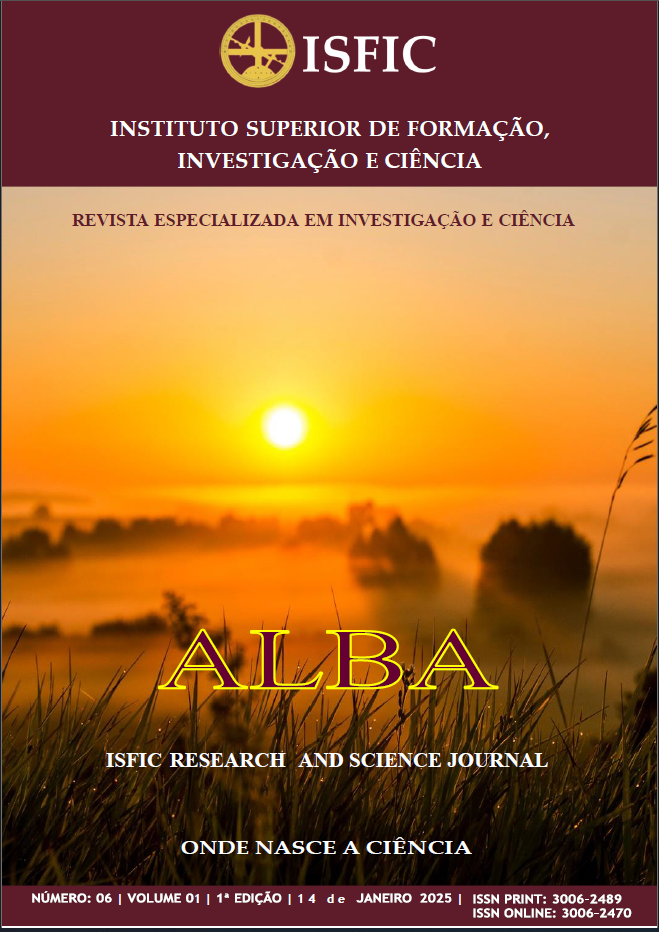TRANSFERÊNCIAS E MOBILIDADE DE QUADROS NO SECTOR PÚBLICO: CASO DO GABINETE DO SECRETÁRIO DO ESTADO DE SOFALA (2020-2022)
Palavras-chave:
Transferência, Mobilidade de quadros, Sector público.Resumo
O artigo é resultado da pesquisa realizada em torno das “transferências e mobilidade de quadros no sector público: caso do Gabinete do Secretário do Estado de Sofala (2020-2022). Através do uso da metodologia qualitativa, o trabalho visa compreender a dinâmica das transferências e mobilidade de quadros dos funcionários neste local. Entre os diferentes resultados, constatou-se que, entre os anos de 2020 a 2022, registou-se um elevado índice de transferências e mobilidades de quadros devido à crescente necessidade de funcionários registada em diversos sectores a nível do país, motivada pela não abertura de concursos. Várias são as motivações alegadas pelos funcionários como base para as suas movimentações, tendo-se destacado a necessidade de se instalar nas capitais provinciais; iniciativas do sector e salários considerados baixos quando comparados aos sectores para onde os funcionários tendem a fazer mobilidade. Por um lado, os motivos mais comuns nos casos de transferência são problemas sociais (casamentos e família) e ambiente de trabalho. Por outro, para os casos de mobilidade, os motivos têm sido a motivação, diferença salarial e desenvolvimento profissional. Finalmente, a pesquisa constatou que as transferências e mobilidades de quadros têm impactos positivos e negativos, podendo-se destacar a diminuição dos funcionários e a saída de conhecimento num sector e o apetrechamento de funcionários e conhecimentos em outro sector.
Downloads
Referências
Albuquerque, L. G. A. (1987). O papel estratégico de recursos humanos. São Paulo.
CIRESP (2001). Estratégia Global da Reforma do Sector Público. Maputo, Imprensa Nacional de Moçambique.
Decreto 28/2022, de 17 de Junho, Aprova o Regulamento do Estatuto Geral dos Funcionários e Agentes do Estado, abreviadamente designado por REGFAE e revoga o Decreto n.º 5/2018, de 26 de Fevereiro.
Fonseca, J. J. S. (2002). Metodologia da pesquisa científica. Fortaleza: UEC, Apostila.
Gil, A.C. (1991). Métodos e técnicas de pesquisa social. São Paulo: Atlas.
Lei n.º 4/2022, de 11 de Fevereiro, que aprova o Estatuto Geral dos Funcionários e Agentes do Estado (EGFAE).
Lei n° 23/2007 de 1 de Agosto, aprova a lei do trabalho.
Longo, F. (2007). Merito e Flexibilidade: a gestão de pessoas no sector público. São Paulo-Brasil.
Moura, P. V. (2004). A Privatização da Função Pública. Coimbra Editora. Coimbra-Portugal.
Moura, P. V e Arrimar, C. (2008). Os novos regimes de vinculação, de carreiras e de remunerações dos trabalhadores da Administração Pública. 1ª edição, Editora Coimbra.
Nonaka, I; Takeuchi, H. (1997). Criação de conhecimento na empresa: como as empresas japonesas geram a dinâmica da inovação. 4. edição. Rio de Janeiro: Campus.
Oliveira, A. S. (2013). Mobilidade de trabalhadores intraempresas e interempresas. Porto.
Santos, A. R. (2001). Gestão do conhecimento: uma experiência para o sucesso empresarial. Champagnat.
Silva, V. P. (1996). Em busca do acto administrativo perdido. Almedina, Coimbra-Portugal.
Sousa, A. (1990). Introdução à Gestão. Uma abordagem sistémica. Lisboa - São Paulo: Editorial Verbo.
Takeuchi, H, Nonaka, I. (2009). Gestão do conhecimento. Editora Bookman.







